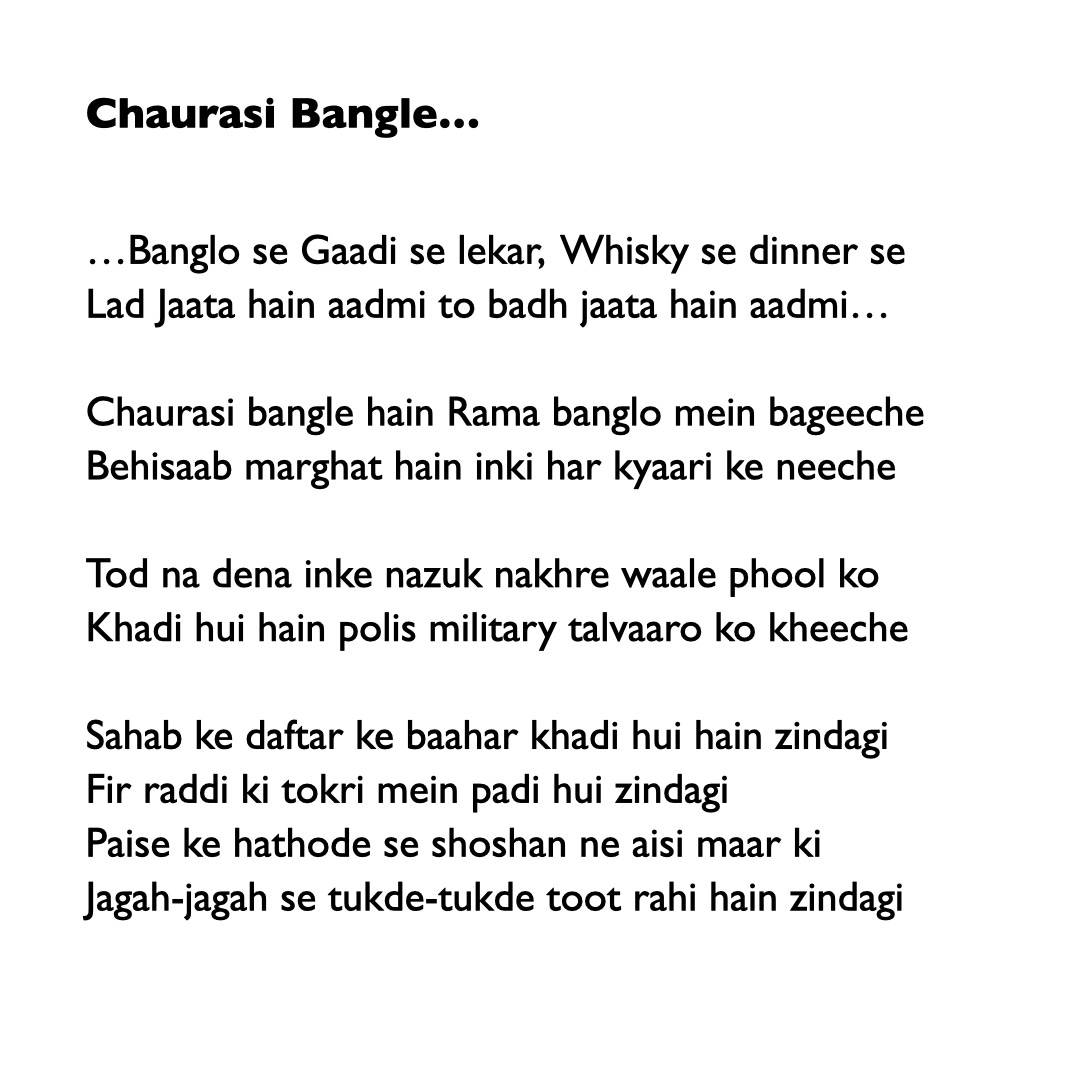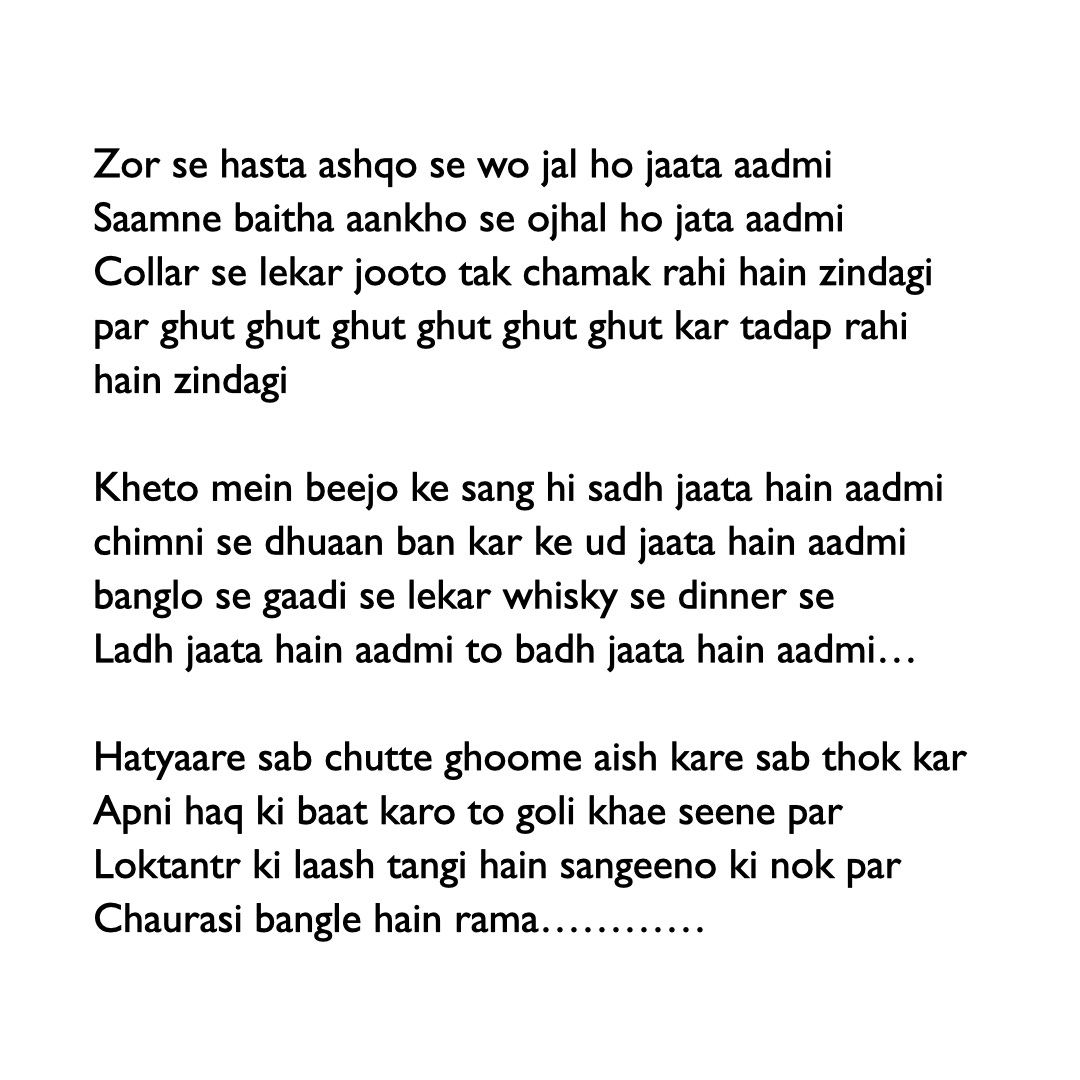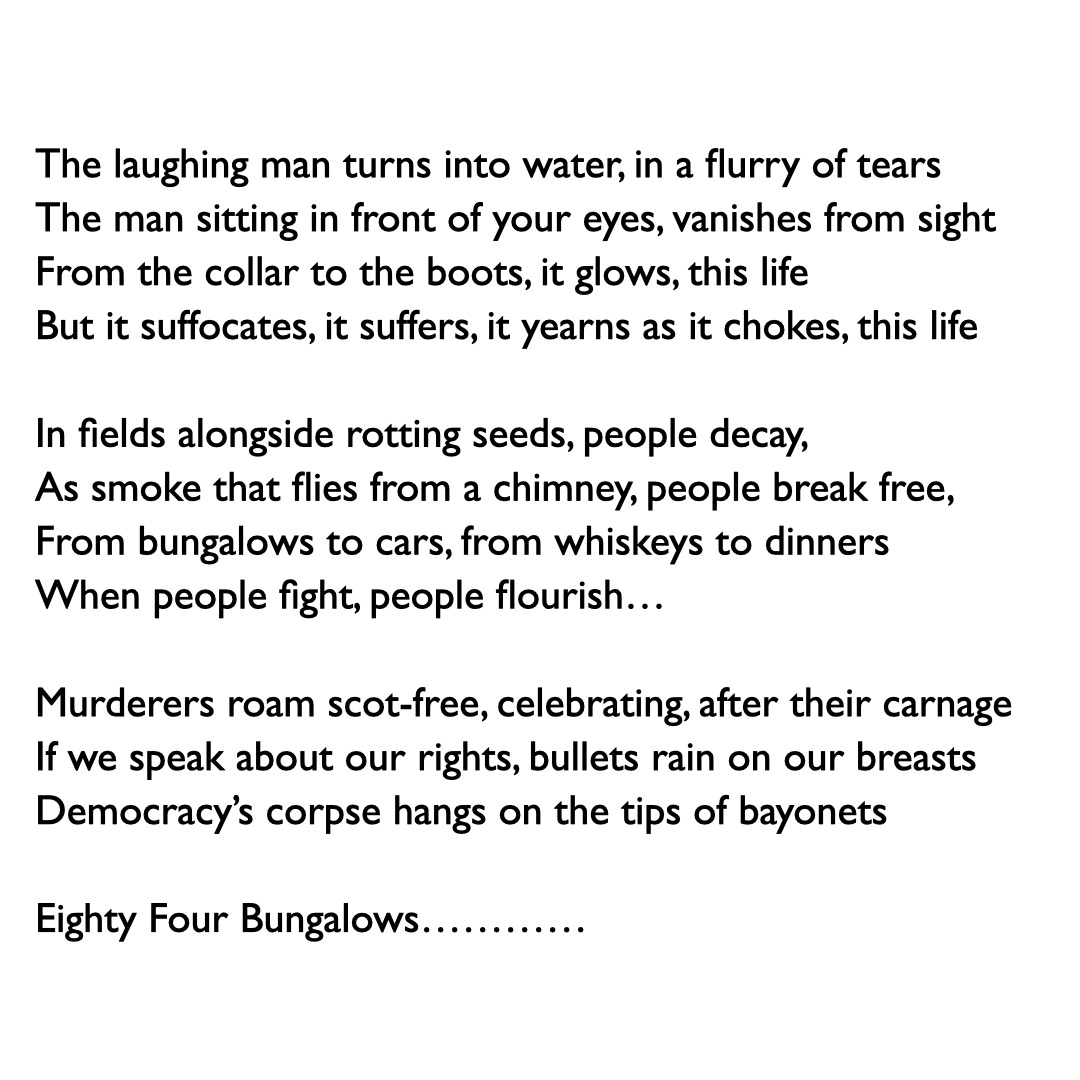In the last analysis, poetry is about communication. Arguably though, real connection, the synchronicity of shared insight, cannot occur outside of that mysterious glade that is epiphany. It is a glade that, perhaps, the mind can only find when it is truly lost in the shrubbery of profound attention. It is at that moment when the word dances, and the listener is active with their attention, that imagination soars in unison. Poetry teaches this through silence. But few things give voice to feeling the way music does. I am partial to sound because it explains without the use of language, and therein lies its mysterious hold.
I remember an old interview where the maverick musician and composer John Cage speaks with great reverence and a learned quietness, about the sound of silence:
It is the last part which, to me, is most interesting, where he cites Kant: “There are two things that don’t have to mean anything, one is music and the other is laughter”. I remember being obsessed with this line.. so much so that I wrote a poem about it almost instantaneously. I was a ‘cat-parent’ then, and the little rascal was being annoyed by me like the black cat Cage is petting in the video. Perhaps the poem might better convey my response to the quote, who knows. Indulge me, momentarily:
Shadow Puppetry
Kant said that there are two things
that don't have to mean anything -one is music,
and the other,
is laughter.the cat is out of the bag
it plays with a plastic ball
pretending it's a mouse
or a recalcitrant threadwhat you have
left behind
is inanimatestill I play.
maybe,
there is a
third.
Is there?
In truth, meaning is overrated. In the past I have cited Brian Massumi’s first line from his celebrated text on affect, Parables of the Virtual. “When I think of my body and ask what it does to earn that name, two things stand out. It moves, it feels”. He does not bring thought into the picture (yet). I align with his proposition that sensation comes before sense (not sense-perception); sensibility. Emotion, if one is exacting, comes later (and I speak here not in terms of temporality). Emotion is a stage in the evolution of affective soaring. It is difficult to process, understand, and articulate with some coherence. All art stems from the descent into this discursive void.
I root this contemplation in the philosophical discourse of absurdism. Camus is most closely associated with the Absurdist imagination, and his Sisyphus epitomises a meaningless existence, irrational and chaotic. Camus ventures that “one must imagine Sisyphus happy”, and indeed the image that has stayed with me through all these years, from his essays on the absurd, is Sisyphus smiling at the top of the mountain like others who smiled, momentarily disarmed with wordless feeling - silent upon a peak in Darien.
It has been more than a week since the release of “Jal Tu Jalaal Tu” by the creative team of filmmakers Prateek Vats and Shubham (They share credits as Director/Co-director, and Co-writer/Writer). Scenes from the film continue to haunt me as I write. Like his previous film, even in this 30-minute short (shot on an iphone), I was left with the lingering feeling of the absurd. I perceived my own presence, not as a spectator, but, as a participant in the theatre of the real.
This is how it is with cinema that touches. Without conscious thought you are seduced by the sensory world of the text, and when the narrative reaches its end, you are confronted with a deep silence. It is a silence in which for a moment everything is apparent. Sounds from the immediate environment engulf our ears. The five senses are on alert, and the mind churns with the intensity of what has just been experienced. The first time I watched the film, I found myself immediately drawn in, alert and attentive to a fault. The invisible hand of the maker is apparent at times, and one is conscious of the medium. However, the film is an exercise in stillness and chaos.
The questions the film deals with are existential, and I trace its influences to the theatre of the absurd, among others. Indeed each scene seems to be crafted with such layered precision, that I could almost hazard that serendipity had a role to play while constructing the setting on the ground - a ray of light here perhaps that changed the film-maker’s perspective on the entire scene, a crowded street there, maybe, which turned out to be a boon allowing the city to enter into a tight frame.
Set in a factory floor, the film opens with the sound of a ringing bell, and a close-up. A man walks out of a public toilet, and is reprimanded by someone for taking too long (40 seconds). The metaphorical timer which has been started, with the piercing tinkle of the bell, doesn’t relent till the end of the film. In the very first sequence the stage is set for a drama with multiple interweaving strands. The man (Madan, played by Harish Khanna) is a worker, in a factory. He is one among a large group of tailors who are working in difficult conditions, under constant surveillance. Marx whispers through the frames, and we start to feel the worker’s alienation in this debilitating modern world. A definitive moment in the film occurs right at the beginning, where Madan starts to laugh as he is doing his work. His sniggering sets off others, and the factory floor rings with the reverberating sounds of people laughing. Why are they laughing? This question itself is redundant. Laughter need not have meaning. Even this single sequence, of a group of workers caught in the struggle of life and livelihood, rupturing the everyday with uninhibited, meaningless laughter is an act of unintentional assertion. It is revolutionary, is it not? In a world gone mad, perhaps humour is the only answer?
I am very tempted to write more about the film- about how time, like space, is a character; about the careful calibration of gaze, and the blocking of actors; about the inner turmoil of Madan; about the boss (sensitively portrayed by Abhishek Anicca) ; about the notion of the “voiceless”, the marginalised, and the subaltern. The film reminds you of the complexities inherent in all kinds of power relationships, and the varying levels of privilege, and how they are problematised through social relationships and interactions. In this regard, the gathering tension and anxiety, reminded me of the way in which circumstances slowly and insidiously reach a climax in Asghar Farhadi’s A Separation.
But I believe I have already said too much. This is not meant to be a review, or an in-depth critique. Too many experiences in today’s world are negated by the critical power of reviews. Critique in itself is not problematic, but I believe that we must feel first, before we cast judgement.
I congratulate the film makers and the entire team.
The poem I am going to share with you today is featured in the film. This is what the filmmakers have to say about the song: “The roots of the song lie in the oral traditions of protest music. Numerous renditions of this song have been sung over years in various peoples’ movements which have both nourished and embellished the song. In keeping with this tradition, we take the song forward for others to add to.”
The writers have written into the song adding inspired lines from here and there (including original lines). One of them is from Pash’s famous poem:“सबसे ख़तरनाक”/Sabse Khatarnak, and the other is the popular invocation ‘Jal Tu Jalaal Tu, Aai Bala Ko Taal tu’ from which the film derives its title. It is an invocation of the almighty to “save us/deliver us from evil”. But I think I will have to ask the filmmakers about their vision, in order to provide a better translation :)
Note: The version I share below uses their arrangement as a base, but also borrows from other renditions both heard live, and online, in different spaces. My translation, as always, takes some creative license, but seeks to keep to the spirit of the original, without any attempt to mimic the metre, prosody, or rhymes. The intention is to archive these words that cradle the inevitable revolution, and to take forward the flaming torch for others share in the light.
I hope you are finding the space to write, to dream, and to resist.
If you like what you read, do consider ‘buying me a coffee’







A moment of synchronicity - I also wrote about Cage and laughter this week, and wrote a poem in response to it! In another interview (on I've Got A Secret) the host asked him if it was ok for people to laugh at his music, and in his beautiful, caring way, he simply said: "Of course, I consider laughter preferable to tears." Love the Kant quote you responded to (I have an odd soft-spot for Kant), and really liked your poem too! :-)